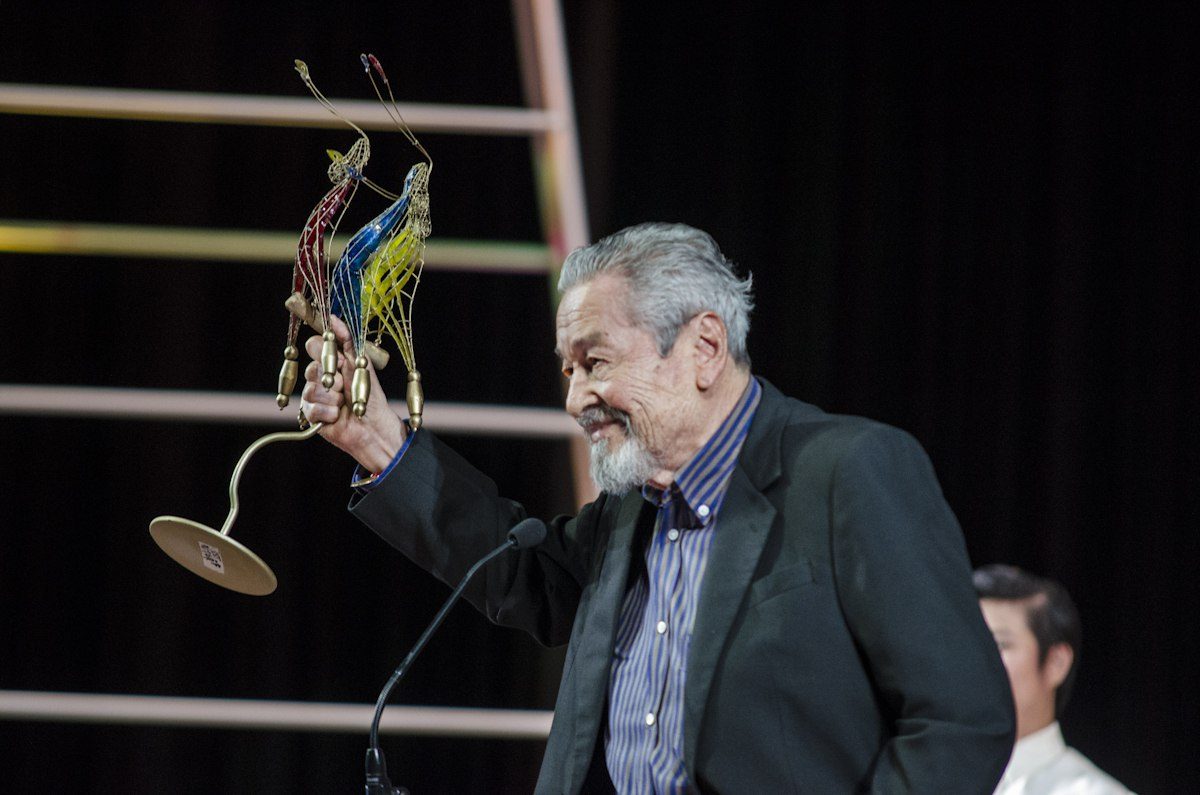SUMMARY
This is AI generated summarization, which may have errors. For context, always refer to the full article.

MANILA, Philippines – President Ferdinand Marcos Jr. signed into law a bill seeking to expand protections for workers in the movie and television industry in the Philippines, after the untimely death of screen legend Eddie Garcia sparked calls for reform.

Garcia, still a workhorse at the age of 90, died in June 2019 after tripping on a cable while taping for a soap opera, an incident that may have been avoided had media conglomerate GMA Network complied with occupational safety standards.
Republic Act 11996 or the “Eddie Garcia Law” – signed on May 24 but released only on Tuesday, May 28 – requires employers and workers to execute an agreement before the commencement of service.
That contract must set the job description, period of engagement, details of compensation and payment schedule which shall be paid at intervals not exceeding 16 days, and work hours, which can only be extended to a maximum of 14 hours per day exclusive of meal periods.
According to the signed law, the hours of work include:
- Waiting time where the worker is required to stay within the premises of the workplace
- The time during which the worker is required to work, including time spent on ocular work, pre-production, and post-production activities
- Travel to and from out-of-town projects, provided that the worker cannot gainfully utilize the travel time for one’s own personal purpose, need or benefit
The measure mandates employers to pay workers if a shoot is canceled less than eight hours before schedule, unless it is due to force majeure.
The law also covers overtime pay, and transport service or reimbursement for transportation fees for workers, unless the contract stipulates a higher compensation already.
In relation to Garcia’s death, the new legislation reiterates the need for employers to comply with occupational safety and health standards provided in Republic Act 11058 and Republic Act 11036.
“The employer shall timely notify the Department of Labor and Employment (DOLE) regional, provincial, or field Office with the production location and schedule,” the law read. “In cases of violations of occupational health and safety standards, the employer, contractor or subcontractor shall be jointly and solidarily liable.”
“The safety officer of the employer or principal shall conduct a risk assessment of the workplace or location of production to identify and eliminate or control any potential hazard to the workers,” it added.
In December 2019, the DOLE ordered GMA and other parties to pay P890,000 for labor violations that resulted in Garcia’s death.
The agency’s investigation found that the soap opera production did not have a safety officer on set, did not have a first-aid responder, and did not submit an incident report within 24 hours of the accident. – Rappler.com
Add a comment
How does this make you feel?












![[Only IN Hollywood] Restored ‘Bona’ draws raves as biggest Filipino delegation gathers at Cannes](https://www.rappler.com/tachyon/2024/05/Cannes20242Ruby-Ruizs-right-first-film-was-with-Nora-Aunor-and-Rustica-Carpio-in-Bona.-I-was-18-years-old-Ruby-recalled.Credit-Carlotta-Films1.jpg?resize=257%2C257&crop=313px%2C0px%2C1350px%2C1350px)






There are no comments yet. Add your comment to start the conversation.